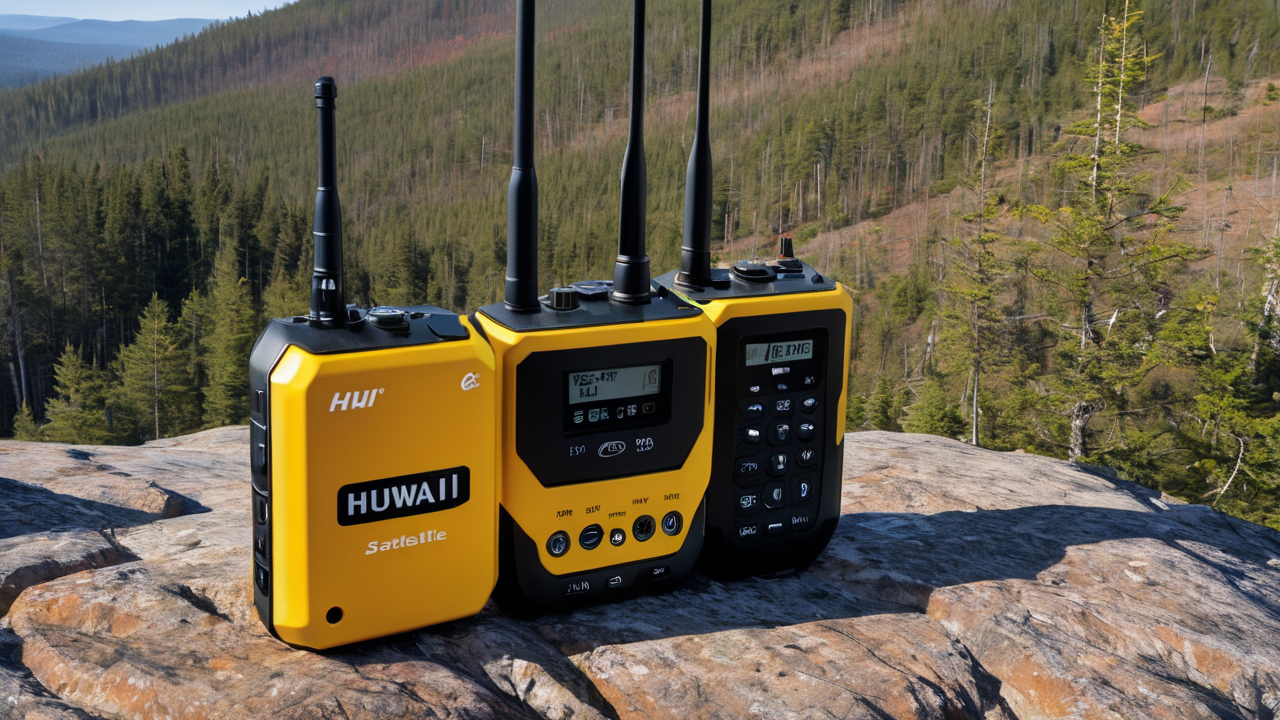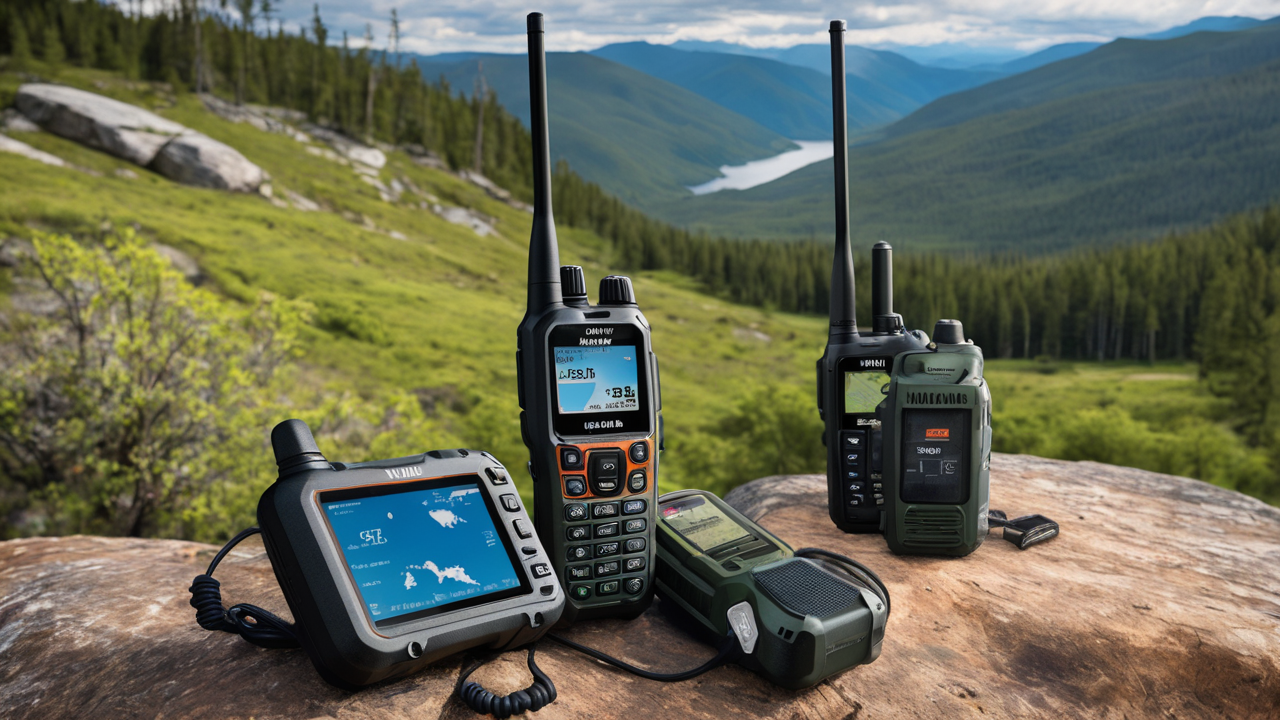Understanding Satellite Walkie Talkies: A Primer
What Are Satellite-Enabled Two-Way Radios?
Satellite-enabled two-way radios, also known as satellite walkie talkies, are advanced communication devices. They use satellites to send and receive signals. This allows them to work in areas where cell phones can't.

These radios are like regular walkie talkies, but with a big upgrade. They can connect to satellites orbiting Earth. This means they can work almost anywhere on the planet.
Satellite walkie talkies are useful for many people. Hikers, campers, and explorers use them in remote areas. Emergency workers rely on them during disasters. They're also handy for workers in rural locations.
The Technology Behind Satellite Two-Way Communication
Satellite two-way communication uses complex technology. It involves a network of satellites in space. These satellites act like giant mirrors in the sky. They bounce signals between users on Earth.
When you speak into a satellite walkie talkie, it sends your voice as a digital signal. This signal travels up to a satellite. The satellite then sends it back down to the receiver's device.
This process happens very quickly. It allows for near real-time communication. The technology uses special frequencies to avoid interference. It also has ways to deal with signal delay and weather issues.
Key Benefits of Satellite Walkie Talkies for Users in the United States
Enhanced Communications in Rural and Remote Areas
Satellite walkie talkies are a game-changer for rural and remote areas. They work where cell phones and regular radios fail. This is crucial for people living or working in these places.

In the vast wilderness of Alaska or the deserts of Arizona, these devices shine. They allow farmers to stay in touch across large properties. Ranchers can coordinate over miles of open land.
These radios also help in mountainous regions. Hikers can call for help from deep in national parks. Workers in remote oil fields can stay connected to base camps. This improved communication can save lives and boost productivity.
Support for First Responders and Emergency Services
First responders and emergency services benefit greatly from satellite walkie talkies. These devices are vital during natural disasters. They work when other communication systems fail.
During hurricanes, earthquakes, or wildfires, regular networks often go down. Satellite walkie talkies keep rescue teams connected. They allow for coordinated search and rescue efforts.
These radios help firefighters communicate in remote forest fires. They let emergency medical teams call for support from isolated areas. Police can use them for operations in cellular dead zones. This reliable communication is crucial for saving lives.
The Advantages for Hobbyists and Outdoor Enthusiasts
Hobbyists and outdoor enthusiasts find many advantages in satellite walkie talkies. These devices offer peace of mind during adventures. They're perfect for hiking, camping, and exploring.
Backpackers can stay in touch on long trails. Mountain climbers can call for help in emergencies. Hunters can coordinate in areas with no cell service. Boaters can communicate far from shore.
These radios allow groups to split up safely. Friends can explore different paths while staying connected. They're great for organizing meetup points in large wilderness areas. Satellite walkie talkies make outdoor activities safer and more enjoyable.
Critical Considerations When Using Satellite Walkie Talkies
Understanding the Limitations of Satellite Signals
Satellite walkie talkies are powerful, but they have limitations. Users need to understand these to use them effectively. Knowing the constraints helps set realistic expectations.

Satellite signals can be affected by various factors. Thick forest canopies can block signals. Tall buildings in cities can interfere with connections. Even bad weather can impact performance.
Users might experience delays in communication. This is due to the distance signals travel to and from satellites. In some cases, the signal might drop completely. It's important to have backup plans and not rely solely on these devices.
Privacy and Security Concerns
Privacy and security are important considerations with satellite walkie talkies. Users should be aware that their communications may not be fully private. This is especially true for non-encrypted models.
Some satellites can be accessed by multiple users or companies. This means conversations could potentially be overheard. Sensitive information should be shared with caution.
There are ways to improve security. Some models offer encryption options. Users should learn about these features. It's also wise to use code words for sensitive topics. Always assume that others might hear your transmissions.
Compliance with FCC Regulations in the United States
In the United States, the Federal Communications Commission (FCC) regulates satellite walkie talkies. Users must comply with these rules. Failure to do so can result in fines or legal issues.
Some satellite walkie talkies require licenses to operate. Users should check if their device needs one. They must also follow rules about where and how they use these radios.
The FCC has rules about signal strength and frequency use. Some areas might have restrictions on satellite communication. It's important to research local laws before using these devices. Staying compliant ensures legal and responsible use of this technology.


